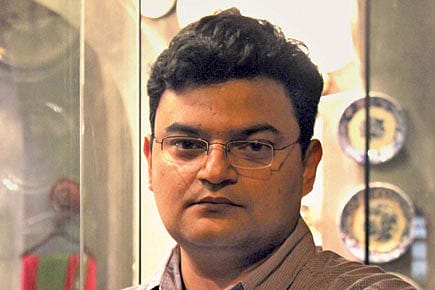Passion Play

Even the best writers tend to occasionally stumble for a paragraph or two before they regain their spark of genius while telling a story. Such gaps—tossing and turning in fiction writing—don't make them any less great than they generally are. It may even be such glimpses of imperfection that hold the reader who gets the liberty of a break before he or she is back under the spell of unfairly beautiful prose. The gift not to bore the reader, not even for a nanosecond, may not be the best quality of a master story teller, but then that is something critics have often cited as a differentiator between the late Gabriel Garcia Marquez, that Colombia-born sorcerer of long tales, and his nearest rival, the prolific Nobel Prize-winning Mario Vargas Llosa. Llosa tends to slip a little once in a while, but Marquez doesn't—though this highly subjective assertion, of course, cannot be a judgment on who is the greater writer.
Now, forget the debate and focus on the rare trait of consistency. And that is what sets Anand Ranganathan apart from several other young Indian writers. For Love and Honour, his latest novel, is as trimmed-to-the- bones as crispy novels can get. More importantly, it is difficult to sense an ounce of boredom in all of its 350-odd pages. This work by Ranganathan, a Delhi-based molecular biologist and media critic, is set in the Northeastern state of Mizoram, a place the writer has visited only briefly. What is remarkable is that he has captured the mood, the smells and the air of the place with admirable dexterity. It is his long- time friend Bharat Solanky that he thanks for helping imagine, develop and conceive the story over 'endless cups of coffee'.
Imran Khan: Pakistan’s Prisoner
27 Feb 2026 - Vol 04 | Issue 60
The descent and despair of Imran Khan
Ranganathan, a columnist with the media critique website Newslaundry who has also made a name for himself as a researcher of infectious diseases and a public health writer, has managed to handle with great familiarity terms used in the military and the lingo of insurgents of the Northeast. It is hard to imagine that the Aizwal the author creates for the reader isn't a town he had lived in as a child because the intense familiarity is contagious, especially when he dwells on the bombings by Indian forces.
The novelist also shows great skills in weaving in childhood memories in the middle of the gripping, pacy narrative of the lives of youthful people filled with energy and passion. It is the story of a partially botched up assault on a group of insurgents, one of whom is a childhood friend of the army officer leading the pack. It is also the tale of an officer junior to him who had been a little sloppy from the start of the operation, taking off as they attempt a Halo jump into the extremist-ridden terrain.
The 'protagonist' of the novel could be anyone: it could be the wounded junior Captain Akhil Mehra, who leaves the army after he loses an arm to pursue a job with a plantation firm where he is smitten by love for the foster-daughter of the owner, while the 'real' daughter gets deeply and dangerously infatuated with him.
Ranganathan's book could also been seen as the story of Major Rahul Schimer, stricken with guilt for killing his childhood friend Daniel who had become a terrorist. He then goes in search of the dead man's family through Mizoram. Ranganathan has sewn with splendid ease all these sub-stories for this compelling thriller.
There are moments when the author tinkers and tailors with enviable speed the present and the past, including moments from that cliffhanger of a match—the 1983 cricket World Cup that Kapil Dev lifted. There is another occasion when Major Schimer stands watching school children play football in his alma mater, and Ranganathan, the gifted writer that he is, takes us back in time and doesn't skid one bit as he changes gear to the days when the now-tough officer was a typical socially awkward child of overly caring parents:
'He waited shy, impassive, near the halfway line, yearning for a pass from Daniel but petrified what he'd do with the ball once he had it. Daniel looked up and saw him, and in a flash kicked the ball, all along the ground—a beautiful, measured pass. Before he knew, the ball had landed at his feet. Three boys from the rival team cornered him at once…'
'Memories, smiled Major Schimer grimly. He recalled how, after the game when he was walking home, Daniel had accompanied him for some time. You have the makings of a good midfielder, he had said.'
This novel originated, according to the author who is an alumnus of Delhi's St Stephen's College and Cambridge University, UK, as 'a challenge to transplant Stefan Zweig's Alpine Edith to the hilly climes of the North East'. And he doesn't disappoint. Not an iota.
